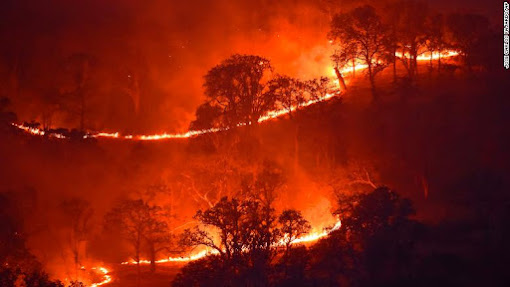If you watched David Attenborough's latest programme called 'Extinction: The Facts' on Sunday night, you will be fully aware of the problems facing the world's wildlife. Most of these have been caused by our human actions and decisions we have made, often when we are far away from the consequences. It is only when we see programmes like these that we become fully aware of the bigger picture and the harm that is happening to wildlife and also to people who live in the most poverty-stricken areas of the world.
Deforestation is a huge issue, and is the most common cause of most loss of wildlife. This is driven by the need to farm cattle, sheep and goats, or to grow animal feed crops such as soya which requires huge amounts of land, fertiliser and water. It is usually cheaper to just clear new land than to help recover and reuse previously farmed land.
Fishing is another problem. Fish are caught inside huge industrial nets which catch many other fish and sea life, not just the desired species that they are after. Quotas may be in place but are not monitored or enforced properly. Many animals each year are entangled in fishing-related equipment or consume plastic items which remain inside their stomachs and cause death if they are unable to feed successfully.
Animal poaching is a hidden problem that continues to happen without much detection. Many animals such as rhinos, elephants and pangolins are trapped and killed for their horns, tusks or scales in the belief that they will cure diseases such as cancer, and they can sell for thousands of dollars on the black market. Animals may also be kept alive in terrible conditions and have very poor quality of life.
The UN announced in a report yesterday that the world has failed to meet any of its targets set out in Japan in 2010 to protect wildlife and reverse the damage that has already been done. They have said 'humanity is at a crossroads' and that it is up to us to take the next steps. Some progress has been taken in some areas, but large areas of vegetation and habitat are still being destroyed and many species are still at risk of extinction particularly in areas such as South America.
Governments can make decisions that will help put laws in place, but it is also up to us as individuals to take actions that will reduce our impact on the planet. To find out more visit the links below:



















